The Case for Valuing Life — Loafing Against the Machine
Why rest, reflection, and rebellion are the antidotes to a dying world.
“The world is moving too fast. Slow down and enjoy the scenery— or miss life itself.”
— Lin Yutang, The Importance of Living
I find a lot of different topics deeply interesting— philosophy, geopolitics, China compared to the West, linguistics, and technology, just to mention a few.
For a while, I didn’t think there was anything unifying these ideas— until I read The Importance of Living by 林语堂 ().
While this piece may echo his work, these are all thoughts I’ve mulled over on high-speed rails, buses, planes, or just lying flat in bed.
His writing became a springboard— helping me synthesize my own observations and think more deeply about how to live well in a world that’s forgetting how to value life.
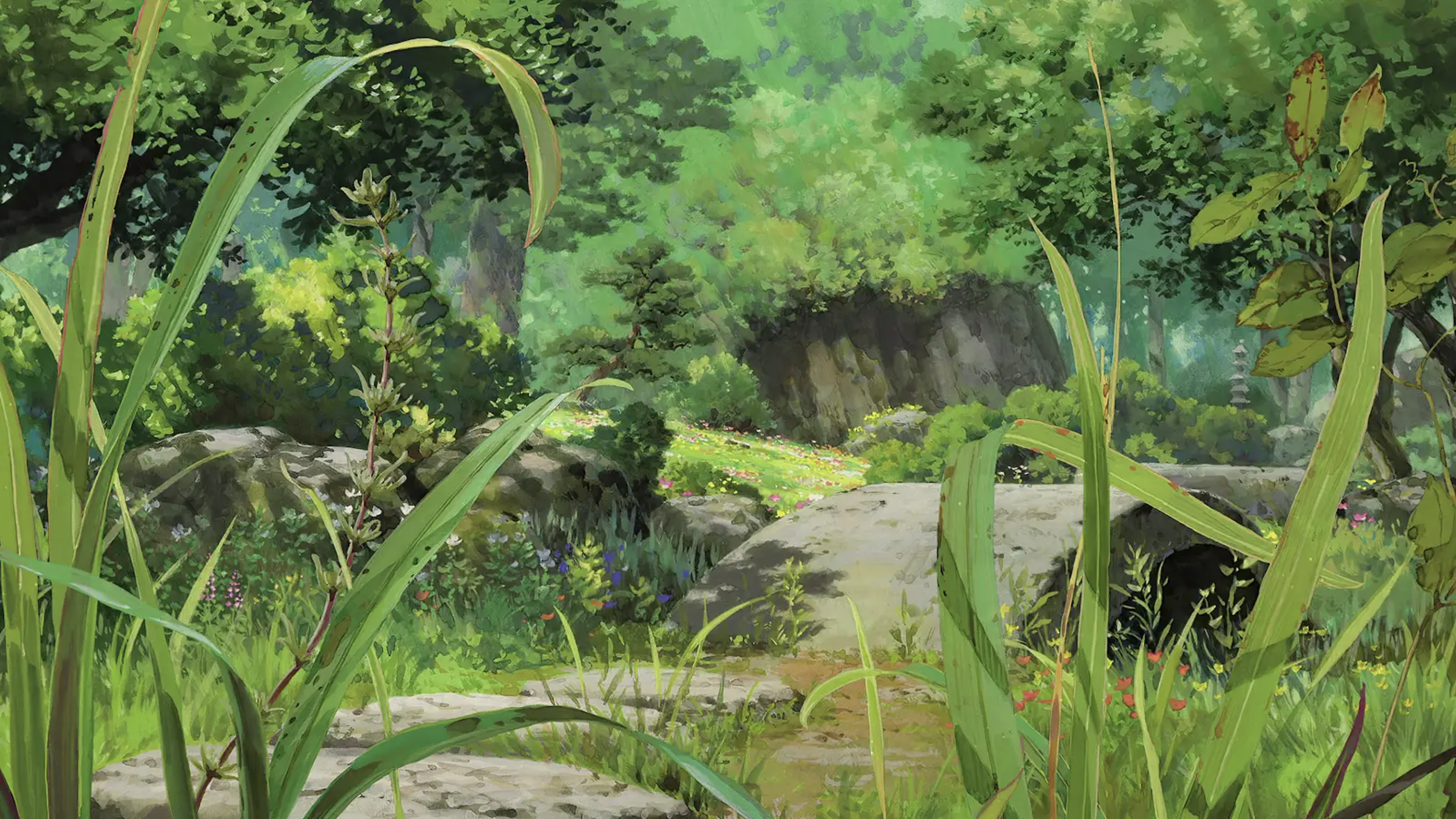
The Wisdom of Loafing
“The wise man loafs while the fool hustles.”
— Lin Yutang, The Importance of Living
Lin Yutang was a Chinese author who briefly taught at Peking University before moving to the United States, where he would eventually settle abroad.
He wrote The Importance of Living during his time in the States as a critique of the hustle culture gripping a rapidly industrializing 1930s America— and, more broadly, of the West’s obsession with productivity.
In it, he explores the concept of loafing— not to be confused with laziness, but a conscious choice to embrace leisure, reflection, and unstructured time.
I like to picture it the way a cat tucks its paws and tail under its body, taking on the shape of a loaf of bread— pausing to nap, to exist, to simply be.
The book draws deeply from ancient Chinese philosophical ideas, especially those rooted in Taoism: concepts such as 无为 (wú wéi) — “effortless action,” and 闲暇 () — “leisurely idleness.”
But what does leisure really mean?
The English word “leisure” comes from Latin — , meaning “to be permitted” — through French into English.
It once meant freedom from obligations: time you were allowed to claim back for yourself.
But the deeper philosophical root of leisure-as-virtue comes from ancient Greece.
The Greek word σχολή () — “leisure” — referred not to idle time, but to time for contemplation, learning, and philosophical inquiry. From this, we get the word school.
Think about that:
What we now associate with grind, stress, and competition was once a word for reflective, unhurried living.
In Aristotle’s world, leisure wasn’t just downtime.
It was the foundation of culture and civilization— the space where philosophy, politics, and art were born.
We’ve forgotten that.
We’ve turned leisure into a luxury— instead of treating it as the very source of life worth living.
These ideas reflect a worldview that prioritizes balance over burnout. Lin urges us to reject a rigid schedule for spontaneity— to seek out nature as a space to loaf, and to treat loafing as a quiet act of resistance: against industrialization, against the machine, and against the erasure of the self.
 “The original loafer”
“The original loafer”
Global Responses to Hustle Culture
Does Lin Yutang’s concerns about the West’s obsession over productivity still apply today?
Most definitely. But there are pockets that have begun to push back.
In the Mediterranean, countries continue to staunchly defend their siesta. Italy embraces the art of idleness through dolce far niente— “the sweetness of doing nothing”— and keeps alive a tradition of evening strolls after dinner simply to pass time.
Even beyond the Mediterranean, Europe has begun to institutionalize rest on both societal and corporate levels. Iceland has successfully implemented a 4-day workweek. And the Dutch concept of niksen— the practice of doing nothing— has found its way into the workplace through dedicated niksen spaces, where employees are encouraged to meditate, unwind, and unplug.
Meanwhile, the US has not only preserved its hustle culture, but it has exported it.
Countries like China, Japan, and Korea now wrestle with the same forces of overwork, stress, and glorified busyness that Lin critiqued in 1930s America.
In Japan, death by overwork is so common it has its own name: 過労死 (karoshi). And in China, an infamous work schedule dominates entire industries: the 996 system: working from 9am to 9pm, six days a week.
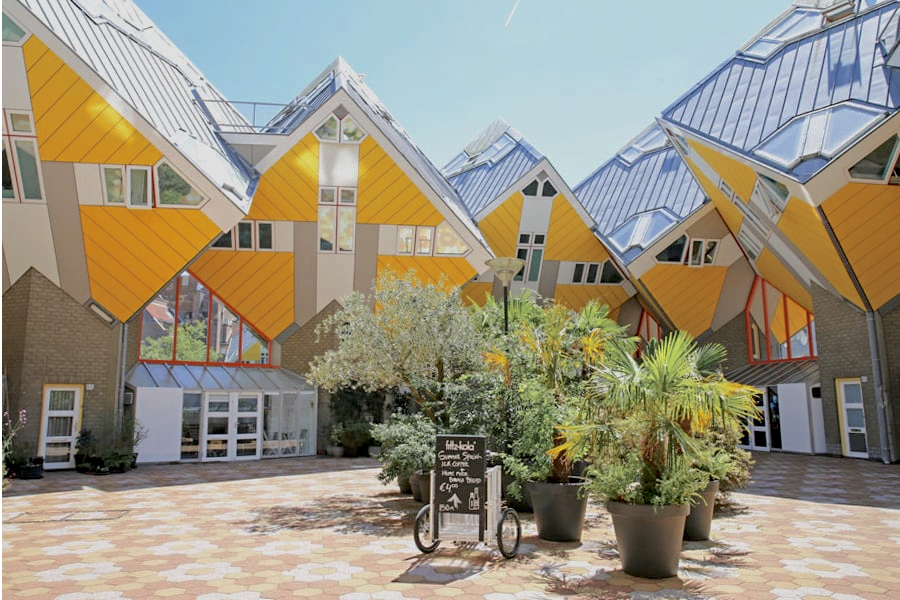 (Cube Houses in Rotterdam, where playfulness isn’t just tolerated— it’s built into the skyline.)
(Cube Houses in Rotterdam, where playfulness isn’t just tolerated— it’s built into the skyline.)
Busyness as a Virtue
While reading this, I encourage you to ask yourself: How does your culture view idle time?
Even if your country has been mentioned, I invite you to think more locally. Your specific circumstances, upbringing, and social circles all act as microcultures too.
Global trends manifest differently in individual lives. In mine, for instance, having lived briefly in both China and the US, I’ve found that both countries equate busyness with virtue on a social level. Among my Chinese friends at Peking University, one emoji that floats around WeChat a lot— used to encourage each other, and to flex how hard they’re working:
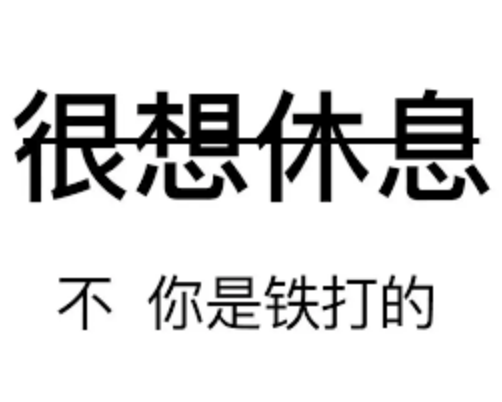
很想休息 不 你是铁打的
()
“I really want to rest No— you’re made of steel”
Words shape how we see the world. In linguistics, we study how language doesn’t just reflect thought— it influences it.
When we glorify words like grind, hustle, or optimize, we start seeing rest as wasteful and joy as indulgent. Being unproductive becomes equivalent to sin.
It might seem harmless. But if repeated enough, this kind of language normalizes self-denial. It warps our sense of what a balanced, healthy life should look like.
And in the US, it’s no better.
Online spaces glorify the ‘sigma grindset’, idolizing lifestyles inspired by satire like American Psycho— where Patrick Bateman, a literal psychopath, wakes up at 6am, cranks out 1000 crunches, 500 pushups, a full 12-step skincare routine, and then gets into his cushy Harvard-educated investment banking job.
 Satire mistaken for scripture.
Satire mistaken for scripture.
This isn’t just unrealistic. It’s multinational, and deeply woven into our digital culture. But what concerns me most is how this mindset rewires how we interpret the world itself.
We’ve stopped seeing life as something to explore, appreciate, or be present in– and started treating it as a series of hoops to jump through just to survive.
That, to me, is the deepest loss: Modern society no longer respects life. It only respects what can be extracted from it.
When Hustle Becomes Design
This obsession with productivity doesn’t just shape our daily lives— it’s embedded in our systems. In our technologies. In the very ways we build and interact with the world.
As a data science major, one of my favorite classes I took at Berkeley was CS 61B, Data Structures. Near the end of the semester, our professor held an optional lecture on ethics. What stuck with me most from the lecture was a question he posed:
What will your work’s impact on the world be?
He had us compare companies like TikTok and Khan Academy— not just what they built, but their societal impact, how they made money, and how they treated their users and employees.
As we reasoned through it, something became painfully clear: our society doesn’t reward meaningful progress. It rewards control.
This is evident in the design choices and incentives that drive modern tech. Many of these companies— driven by short-term profits and endless growth became so obsessed over the question of could we? that they stopped asking should we? That, to me, is a deep disrespect to life. Not just for their own, but the lives of the people who use their products.
The lecture introduced us to the ledger of harms , created by the Center for Humane Technology (which I highly encourage you to check out). It catalogs how profit-driven design has caused real damage: eroding attention spans, worsening mental health, polarizing entire nations, and distorting how we make sense of the world. And as someone who works with AI, I get frustrated when people casually say, “Oh yeah AI will replace people’s jobs and increase inequality.”
While this may be true, that really sucks. Because AI is not the enemy. It’s a beautiful, powerful innovation— already accelerating medical breakthroughs, optimizing global networks, and bolstering fields of every kind.
The real problem is how we choose to use it. If AI creates massive value, companies shouldn’t be laying off workers. They should be shortening the workweek. Sharing the gain. Improving life. But instead, that value is only captured at the top. Because what we call corporate greed… is really just a deep disrespect for life. And ordinary people suffer as a result.
I’ll leave you with one of the most dystopian quotes I’ve ever come across— few lines better capture Silicon Valley’s disregard for humanity:
“AI will probably most likely lead to the end of the world, but in the meantime, there’ll be great companies.”
— Sam Altman, CEO of OpenAI
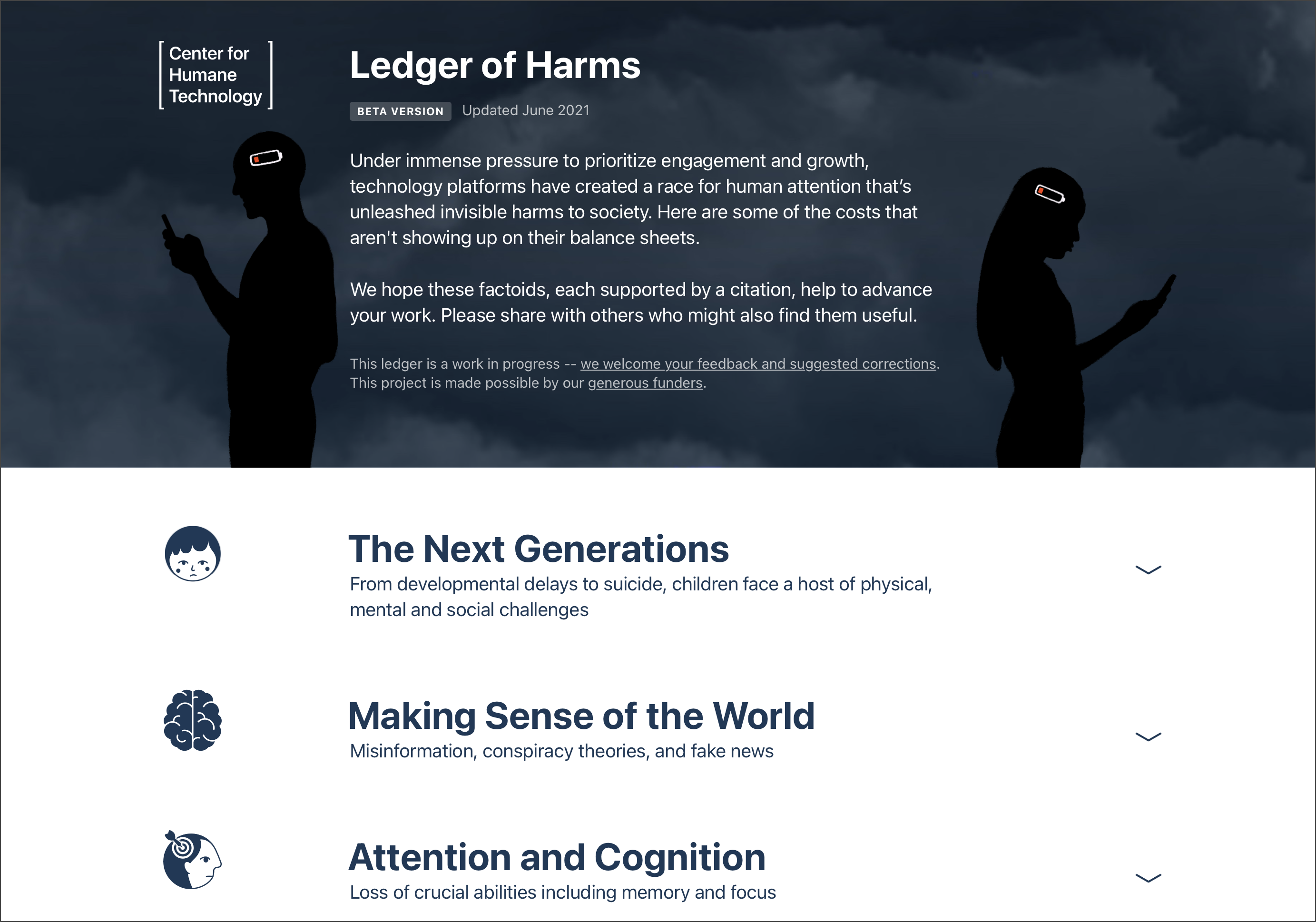 (Source: Center for Humane Technology)
(Source: Center for Humane Technology)
Even in Fiction We Miss the Point
This obsession with control— treating life as a formula, glorifying hustle culture, and praising those who ‘play the game’ well— has seeped so deeply into our worldview that even our fiction reflects it. Worse, we often miss the message entirely.
Take Dune, for example. I read the books before the second part of the movie came out, having been enraptured by the first film. I was excited about the philosophies, the political struggles, the power structures, the religious critiques. But one quote in particular caught me off guard— something that echoed Kierkegaard’s philosophy on dread and destiny.
At the time, while profound, it seemed out of place. Now, I think I understand.
(I include the quote later in the piece to preserve this section’s flow— keep reading!)
Dune is full of warnings: about religion, about personality cults, about concentrating too much power in too few hands.
But it’s also about what happens when a person can ‘solve’ life. Paul Atreides gains the power of prescience— to see the future. And the moment he does, he stops living.
He becomes a shell of the curious boy who once dreamed of other planets. Every choice becomes a calculation. Every action, a burden. He’s locked into a path he can’t escape, constantly sacrificing his autonomy for what he believes is the “best” outcome. It crushes his spirit. He burns out.
And yet— despite all this— people around the world glorify him. They idolize Paul as a visionary, a messianic leader, the ultimate strategist. Which is exactly what Frank Herbert meant to warn us against.
To be honest, maybe it’s a prank Herbert pulled on all of us. He builds a story meant to critique our obsession with control, with destiny, with hero worship– and the very readers who engage with it fall for the myth he’s trying to dismantle.

When Life Becomes a Formula
When we treat life like a problem to solve, not only do we lose joy— we lose the courage to pursue what we love. We create systems where risk is punished, creativity is stifled, and people force themselves into paths that don’t fit— just to survive.
Look at China’s performance in the Paris 2024 Olympics. They tied with the US for the most gold medals— an objectively impressive showing.
But look closer, and you’ll notice: nearly all of China’s golds came from individual sports.
Chinese athletes aren’t chosen for passion. They’re selected as children, then trained relentlessly based on the Chinese Olympic Committee’s “小, 巧, 难, 女, 少” () criteria:
SMALL events (fewer competitors)
SKILLFUL sports (technique-heavy)
DIFFICULT events (higher reward, lower field)
WOMEN'S categories (historically less competitive)
LESS popular sports (less global intensity)
It’s not a system built to nurture athletes. It’s a system designed to manufacture winners.
And it’s why China continues to underperform in team sports. Despite having one of the earliest recorded forms of soccer— 蹴鞠 ()— China’s modern men’s national football team is notoriously bad. (Though to be fair, corruption and environmental factors don’t help.)
You see the same pattern in the 高考 () — China’s university entrance exam system: One path. One chance. One track.
When a society forces everyone through the same narrow path, it loses out on countless artists, athletes, and entrepreneurs before they even have a chance to begin. I’ve seen it in my own life. My Chinese friends are brilliant– but so many of them have been conditioned to avoid failure, dirt, and discomfort.
They’ve become afraid to take risks. Afraid to play. Afraid to explore. Afraid to live fully.
And this mindset— the fear of doing anything that doesn’t guarantee success— isn’t just a Chinese problem.
It’s a generational one.
I see it in my peers from all over the world. Not just in China. Not just in the West.
Our generation has inherited systems so optimized, so risk-averse, we started internalizing those values ourselves.
We don’t just fear failure. We engineer our lives around avoiding it.
And in the process, we lose more than spontaneity or joy. We lose the freedom to experiment. To mess up. To do what doesn’t scale.
We’re growing up into a world that rewards execution— but forgets to teach us how to dream.
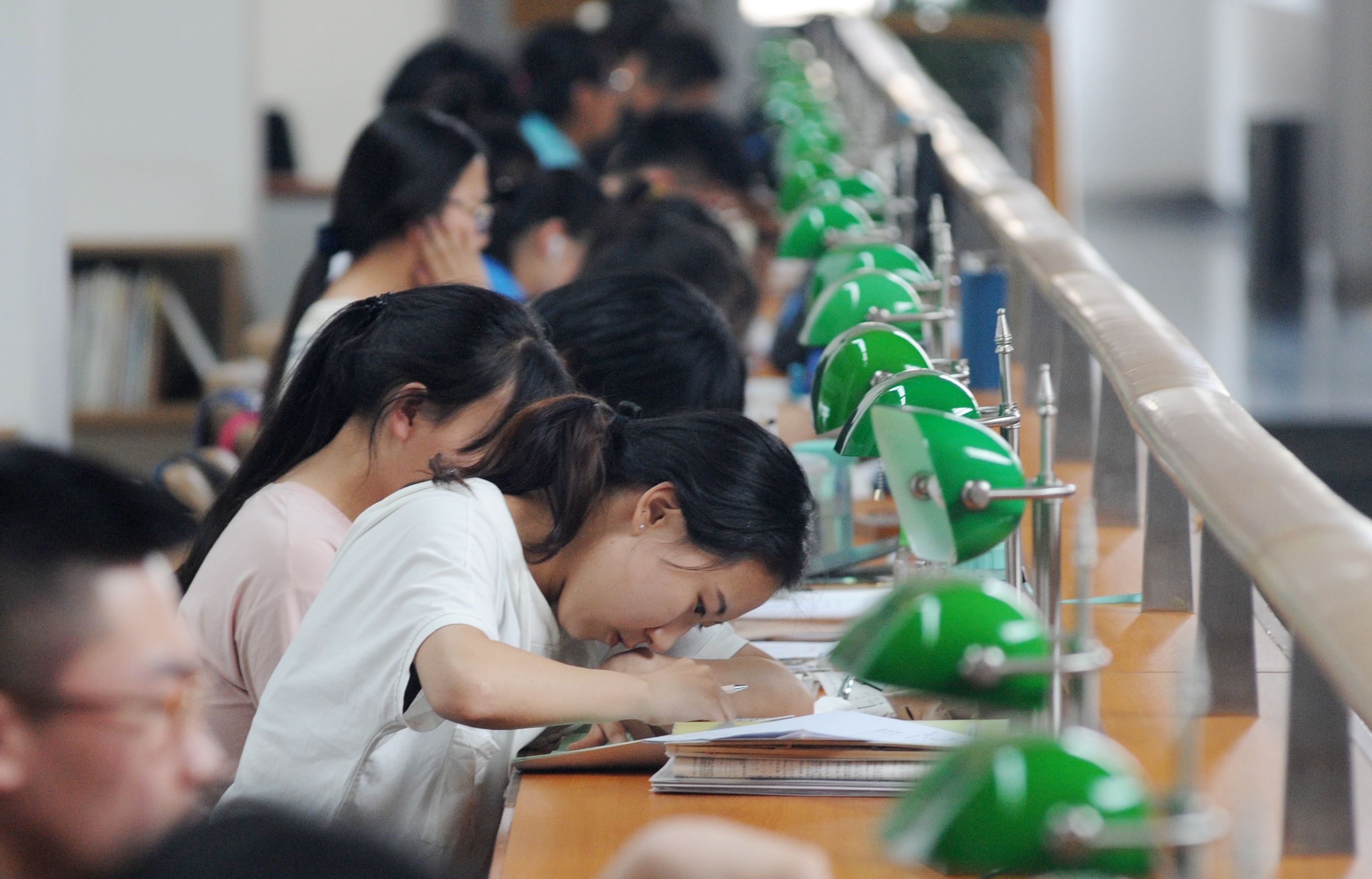
The Cost of Winning
We live in an era where our systems— economic, educational, technological— have been optimized to win. But not to act with integrity.
And what does winning even mean anymore? It means chasing metrics at the expense of meaning.
In education: students are taught to memorize facts and ace exams— not to think, reflect, or question. In academia: researchers manipulate data to fit their hypotheses just to get published in a prestigious journal. In economics: companies cut corners to hit quarterly earnings— instead of building things that last. In tech: platforms are designed to addict— not to serve.
On the national level, countries behave less like communities— and more like corporations: obsessed with output, growth, and edge– no matter the human cost.
This shift— from purpose to prestige, from strength to status, from meaning to metrics– creates fragile systems.
When nations stop doing what they’re good at, what brings them joy, what contributes authentically– and instead chase what they think will make them “win”–
they often end up with mediocre products, burnt-out workers, and stagnant cultures.
Globalization once made things cheaper and more innovative– because countries leaned into their comparative advantages.
The very device you’re reading this on? It only exists because of that model.
If you’re using a device made by Apple, you’re interacting with a product:
designed in California,
made with steel from India,
zinc from Australia,
copper from Chile,
Saudi Oil,
Taiwanese chips,
and final assembly in China.
But now?
In an age of growing geopolitical fragmentation and zero-sum thinking, we’re watching that model fall apart.
Instead of reinvention, we get bandaids: insular economies, protectionist policies, reactive decisions.
The result?
Higher costs.
Worse outcomes.
A growing sense that everything feels broken.
We’re not just losing efficiency.
We’re losing integrity.
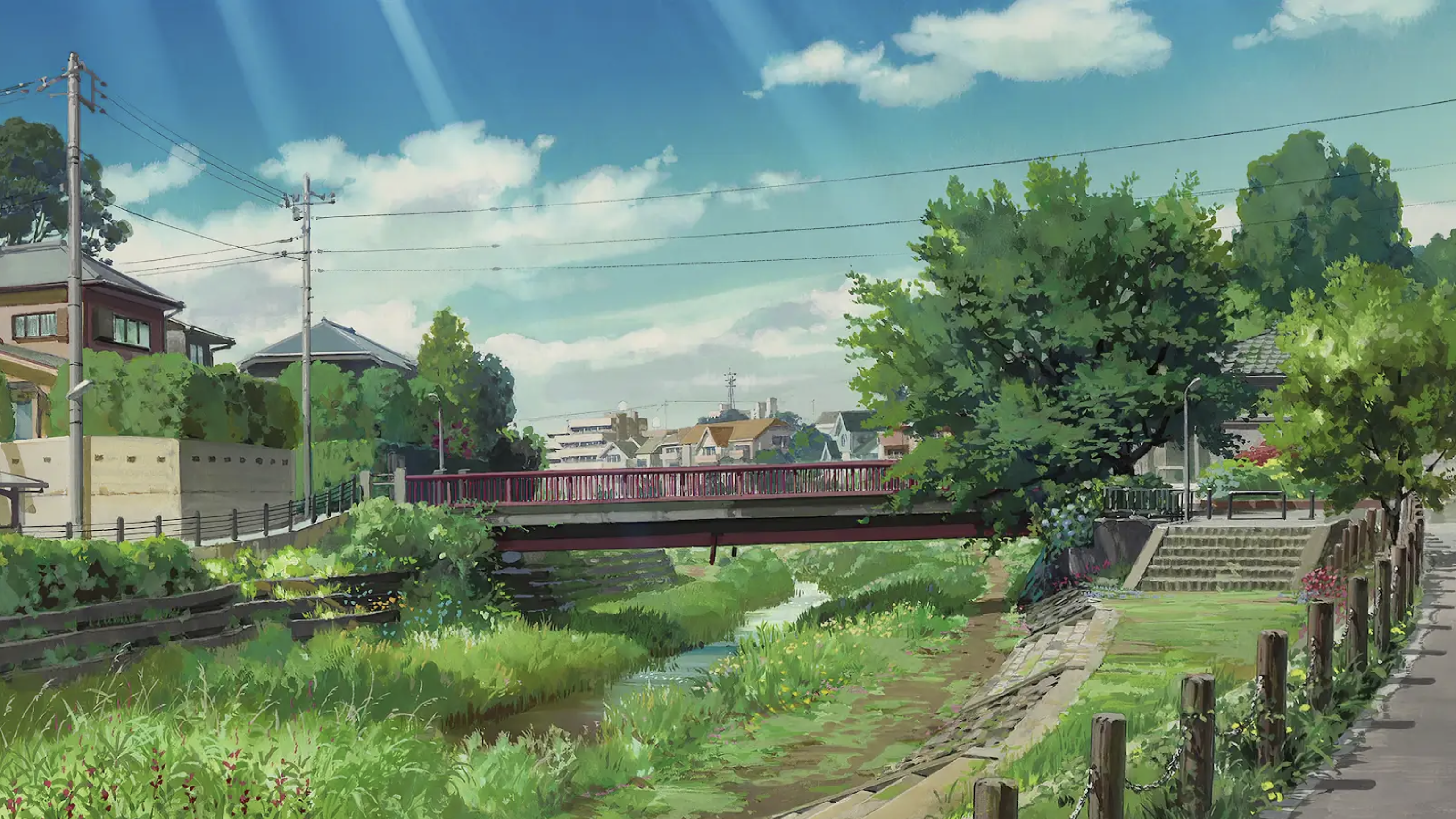
Cracks in the System
When we glorify control instead of understanding, we lose the very things that make life worth living. And now, the cracks in our systems are starting to show.
Let me ask you a question:
What really matters?
The countries I’ve mentioned before— the US, China, Japan, South Korea— are among the most developed in the world. They boast staggering GDPs, advanced infrastructure, and a disproportionate share of global power— both hard and soft. By most metrics, their citizens live very good lives.
But at what cost?
The average American works 1,700 hours annually. The average Chinese citizen? Over 2,000— and that’s not even counting unpaid overtime or the illegal yet rampant 996 schedule.
This isn’t just a grind. It’s a form of societal conditioning. And it’s burning people out.
Want to see what that looks like?
Take a look at this map:
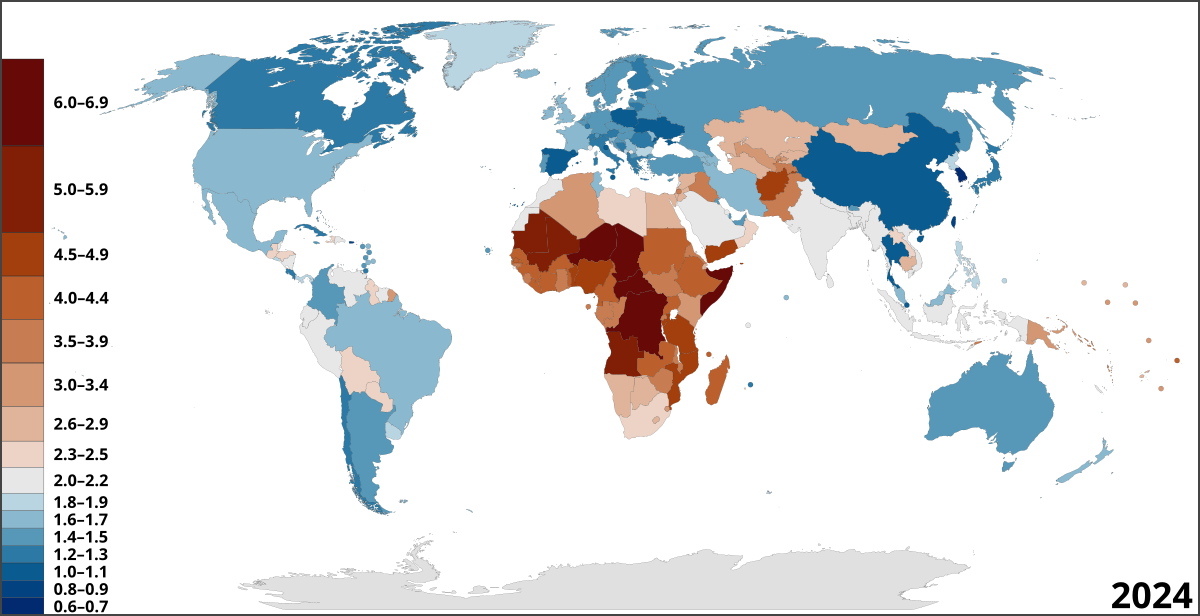
At first glance, it’s just a sea of dark reds and blues. But what this map actually shows is total fertility rate: how many children, on average, each woman is expected to have in her lifetime.
The global replacement rate— the level needed to sustain a population— is about 2.1. Now look at the most developed countries: Every single one is below that line.
The most alarming cases?
South Korea: 0.72 China: 1.00 Japan: 1.26
To be clear, a lower birth rate in developed nations is normal. When people have more resources, they tend to prioritize quality over quantity when raising kids. Meanwhile, families in more rural or developing regions often have more children as a source of labor and security.
But what’s happening in East Asia isn’t just about choice. It’s about pressure. It’s about exhaustion.
Look at South Korea.
People are working long hours— under intense academic pressure, corporate grind, and economic precarity. Young Koreans can’t afford housing. They’re too burned out to date, let alone raise a child. And as the birth rate drops, the burden on the next generation only grows heavier and heavier.
At this rate, Korea’s entire social fabric is at risk. Culture, traditions, even language— slowly fading for lack of people to carry them forward.
And what’s the response?
Bandaids.
Tax breaks. Government bonuses. Ad campaigns telling people to have more babies.
But none of that addresses the root issue: We’ve built systems that don’t respect people’s lives.
Until that changes, no incentive will be enough. Because the problem isn’t demographic, it’s philosophical.
This isn’t just a Korean tragedy. It’s a warning for all of us.
This quiet collapse isn’t happening because people don’t want to live– it’s because we’ve made life so hard to actually live.
So What Can We Do?
Even with these cracks in our systems, I still believe we are living in the richest, most exciting time in history— not because things are perfect, but because so much is still possible.
Technological innovations have unlocked possibilities once reserved for science fiction. Humanity has discovered a vaccine for malaria— one of the deadliest diseases in human history. Gene editing and 3D printing are paving the way for lab-grown organs, potentially ending transplant shortages. Tools like CRISPR are already being used in clinical trials to treat conditions like high cholesterol. And the simple ability to refrigerate and store food over time? That alone has transformed modern survival.
Today, the average person has access to more health, knowledge, and comfort than a medieval king ever did. There is immense potential— if only we choose to wield it wisely.
This starts with you.
Take five minutes. Walk outside. Feel the sun. Notice the flowers. Be still.
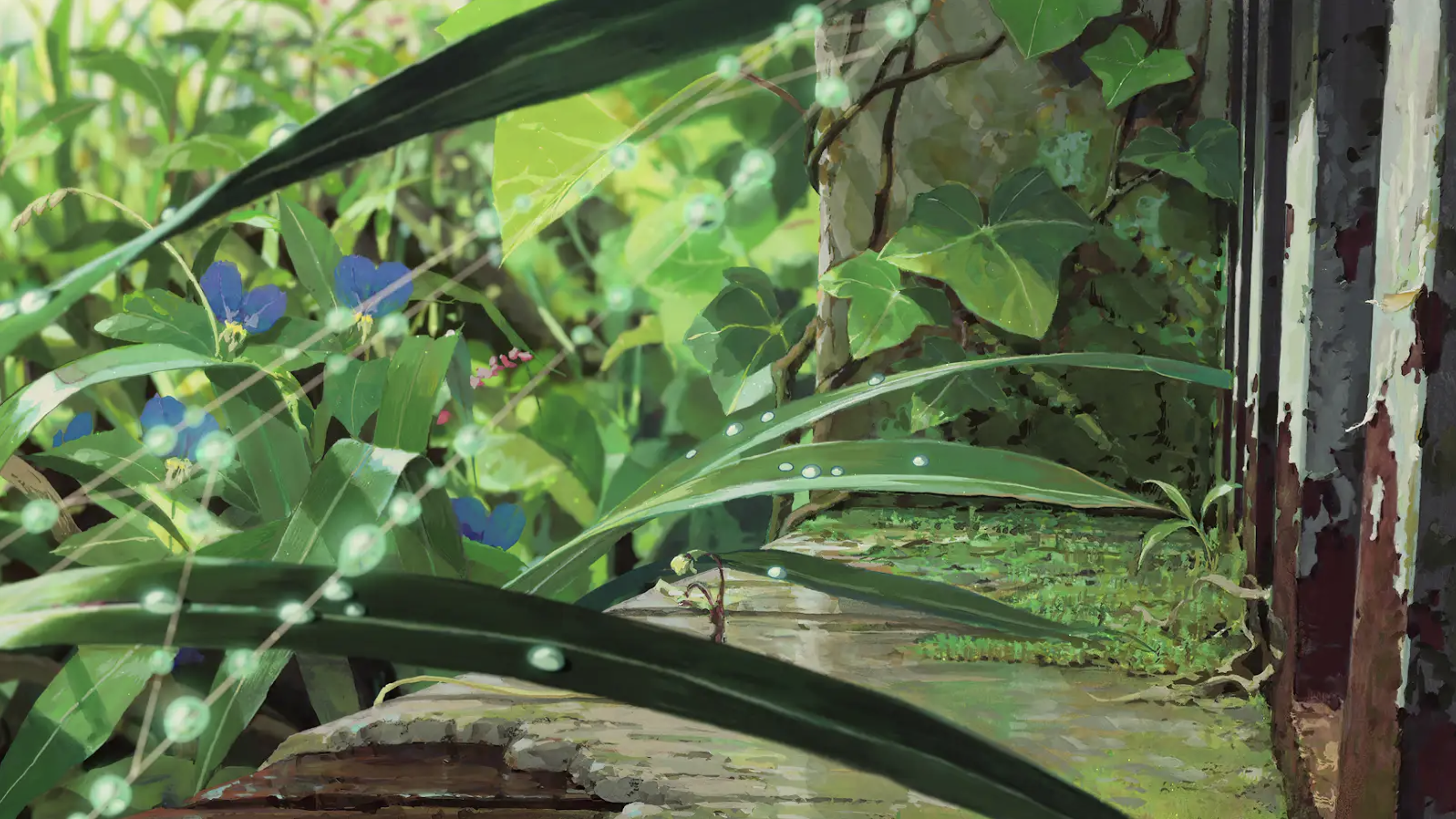 “Zoom in. Life is still here.”
“Zoom in. Life is still here.”
Every time you’re about to say something that glorifies hustle— pause. Because language doesn’t just reflect thought. It helps shape it.
When we name loafing as noble, or leisure as essential, we create space for a different kind of life.
So shift your language. Say I’m resting instead of I’m being lazy. Say I wandered instead of I wasted time. Say I paused instead of I fell behind.
Let your words reflect a different kind of truth– one that honors being over doing.
In a world obsessed with output, I encourage you to loaf. To reflect. To rebel. To bring balance to your life— and invite others to do the same.
Societal impact starts in your immediate circles— and ripples outward until even governments and corporations begin to shift.
These problems feel huge. But the smallest acts of rebellion restore balance. And little by little, we make the world more worth living in.

I’ll leave you with a quote that I touched on in Even in Fiction We Miss the Point— one that continues to guide me:
“The mystery of life isn’t a problem to be solved, but a reality to be experienced.”
— Frank Herbert, Dune